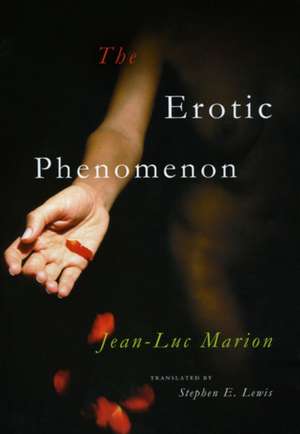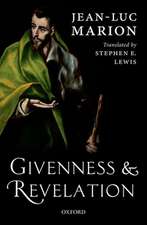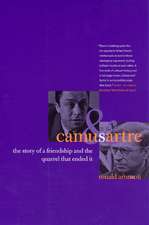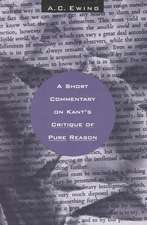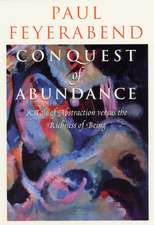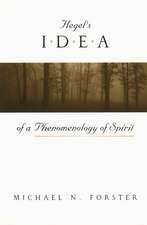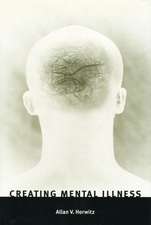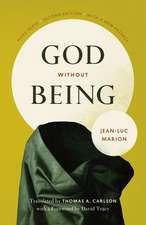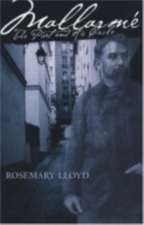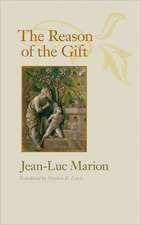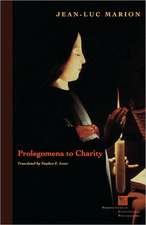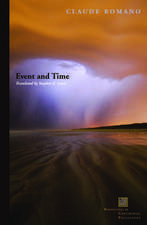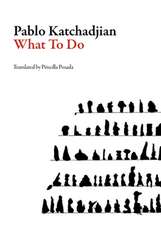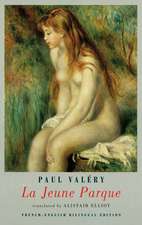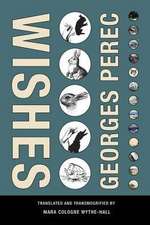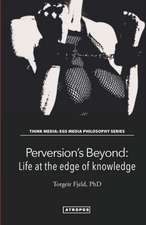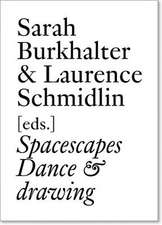The Erotic Phenomenon
Autor Jean-Luc Marion Traducere de Stephen E. Lewisen Limba Engleză Paperback – 15 apr 2008
While humanists have pondered the subject of love to the point of obsessiveness, philosophers have steadfastly ignored it. The word philosophy means “love of wisdom,” but the absence of love from philosophical discourse is curiously glaring. In The Erotic Phenomenon, Jean-Luc Marion attends to this dearth with an inquiry into the concept of love itself.
Marion begins with a critique of Descartes’ equation of the ego’s ability to doubt with the certainty that one exists. We encounter love, he says, when we first step forward as a lover: I love therefore I am, and my love is the reason I care whether I exist or not. This philosophical base allows Marion to probe several manifestations of love and its variations, including carnal excitement, self-hate, lying and perversion, fidelity, the generation of children, and the love of God. Throughout, Marion stresses that all erotic phenomena stem not from the ego as popularly understood but instead from love.
“Marion is doing the most interesting work in phenomenology today. . . . This is not a book about other books about love. It is patiently and carefully attentive to ‘the things themselves,’ and reads as an analysis that is at once rigorous and lyrical—attuned to both the concept and the caress.”—Choice
Marion begins with a critique of Descartes’ equation of the ego’s ability to doubt with the certainty that one exists. We encounter love, he says, when we first step forward as a lover: I love therefore I am, and my love is the reason I care whether I exist or not. This philosophical base allows Marion to probe several manifestations of love and its variations, including carnal excitement, self-hate, lying and perversion, fidelity, the generation of children, and the love of God. Throughout, Marion stresses that all erotic phenomena stem not from the ego as popularly understood but instead from love.
“Marion is doing the most interesting work in phenomenology today. . . . This is not a book about other books about love. It is patiently and carefully attentive to ‘the things themselves,’ and reads as an analysis that is at once rigorous and lyrical—attuned to both the concept and the caress.”—Choice
“Marion's avowed topic is the erotic phenomenon, and his method is phenomenology. He is a master of that method, and the result is an analysis of erotic love of unparalleled precision and depth. The depiction he gives of the erotic phenomenon is fundamentally convincing, and readers will find their own loves illuminated and questioned.”—Commonweal
| Toate formatele și edițiile | Preț | Express |
|---|---|---|
| Paperback (1) | 184.18 lei 3-5 săpt. | +12.02 lei 7-13 zile |
| University of Chicago Press – 15 apr 2008 | 184.18 lei 3-5 săpt. | +12.02 lei 7-13 zile |
| Hardback (1) | 583.30 lei 6-8 săpt. | |
| University of Chicago Press – 15 noi 2006 | 583.30 lei 6-8 săpt. |
Preț: 184.18 lei
Nou
Puncte Express: 276
Preț estimativ în valută:
35.24€ • 37.69$ • 29.38£
35.24€ • 37.69$ • 29.38£
Carte disponibilă
Livrare economică 27 martie-10 aprilie
Livrare express 13-19 martie pentru 22.01 lei
Preluare comenzi: 021 569.72.76
Specificații
ISBN-13: 9780226505374
ISBN-10: 0226505375
Pagini: 240
Dimensiuni: 152 x 229 x 15 mm
Greutate: 0.31 kg
Editura: University of Chicago Press
Colecția University of Chicago Press
ISBN-10: 0226505375
Pagini: 240
Dimensiuni: 152 x 229 x 15 mm
Greutate: 0.31 kg
Editura: University of Chicago Press
Colecția University of Chicago Press
Notă biografică
Jean-Luc Marion is professor of philosophy at the University of Paris-Sorbonne Paris IV, and the John Nuveen Distinguished Professor in the Divinity School and professor in the Committee on Social Thought and the Department of Philosophy at the University of Chicago. He is the author of several books, including, most recently, On Descartes’ Metaphysical Prism, also published by the University of Chicago Press. Stephen E. Lewis is assistant professor of English at the Franciscan University of Steubenville. He is the translator of Jean-Luc Marion’s Prolegomena to Charity and Jean-Louis Chrétien’s Hand to Hand: Listening to the Work of Art.
Cuprins
Translator's Acknowledgments
The Silence of Love
Concerning a Radical Reduction
1. Doubting Certainty
2. "What's the Use?"
3. The Erotic Reduction
4. The World According to Vanity
5. Space
6. Time
7. Ipseity
Concerning Every Man for Himself, and His Self-Hatred
8. Separation and Contradiction
9. The Impossibility of a Love of Self
10. The Illusion of Persevering in One's Being
11. Whether I Will It or Not
12. Self-Hatred
13. The Passage to Vengeance
14. The Aporia of Assurance
Concerning the Lover, and His Advance
15. Reducing Reciprocity
16. Pure Assurance
17. The Principle of Insufficient Reason
18. The Advance
19. Freedom as Intuition
20. Signification as Face
21. Signification as Oath
Concerning the Flesh, and Its Arousal
22. Individuality
23. My Flesh, and the Other's
24. Eroticization as Far as the Face
25. To Enjoy
26. Suspension
27. The Automaton and Finitude
28. Words for Saying Nothing
Concerning Lying and Truthfulness
29. The Naturalized Person
30. The Gap and Deception
31. Abduction and Perversion
32. The Street of Darkened Faces
33. Jealousy's Honor
34. Hatred's Way
35. Free Eroticization
Concerning the Third Party, and Its Arrival
36. Faithfulness as Erotic Temporality
37. The Ultimate Anticipatory Resolution
38. The Advent of the Third Party
39. The Child, or the Third Party on the Point of Leaving
40. The Adieu, or the Eschatological Third Party
41. Even Oneself
42. The One Way
Index
The Silence of Love
Concerning a Radical Reduction
1. Doubting Certainty
2. "What's the Use?"
3. The Erotic Reduction
4. The World According to Vanity
5. Space
6. Time
7. Ipseity
Concerning Every Man for Himself, and His Self-Hatred
8. Separation and Contradiction
9. The Impossibility of a Love of Self
10. The Illusion of Persevering in One's Being
11. Whether I Will It or Not
12. Self-Hatred
13. The Passage to Vengeance
14. The Aporia of Assurance
Concerning the Lover, and His Advance
15. Reducing Reciprocity
16. Pure Assurance
17. The Principle of Insufficient Reason
18. The Advance
19. Freedom as Intuition
20. Signification as Face
21. Signification as Oath
Concerning the Flesh, and Its Arousal
22. Individuality
23. My Flesh, and the Other's
24. Eroticization as Far as the Face
25. To Enjoy
26. Suspension
27. The Automaton and Finitude
28. Words for Saying Nothing
Concerning Lying and Truthfulness
29. The Naturalized Person
30. The Gap and Deception
31. Abduction and Perversion
32. The Street of Darkened Faces
33. Jealousy's Honor
34. Hatred's Way
35. Free Eroticization
Concerning the Third Party, and Its Arrival
36. Faithfulness as Erotic Temporality
37. The Ultimate Anticipatory Resolution
38. The Advent of the Third Party
39. The Child, or the Third Party on the Point of Leaving
40. The Adieu, or the Eschatological Third Party
41. Even Oneself
42. The One Way
Index
Recenzii
“In attempting to place love at the center of things, Jean-Luc Marion wishes to escape the reign of heartless reason.”
“A superb philosophical reflection on love. . . . Here, finally, is a book that explores the intimate landscape of each one of us . . . . [Marion] deserves our complete attention. Let’s give it to him.”--L’Express
“The Erotic Phenomenon is a philosophical act of love. Not a discourse of love, nor one on love, but an act of love, an act that makes love, that makes it happen, that ‘conceives’ it.”--Liberation
"Marion's avowed topic is the erotic phenomenon, and his method is phenomenology. He is a master of that method, and the result is an analysis of erotic love of unparalleled precision and depth. The depiction he gives of the erotic phenomenon is fundamentally convincing, and readers will find their own loves illuminated and questioned."
“Marion is doing the most interesting work in phenomenology today. . . . This work carries on the true spirit of phenomenology: this is not a book about other books about love. It is patiently and carefully attentive to ‘the things themselves,’ and reads as an analysis that is at once rigorous and lyrical—attuned to both the concept and the caress.”
"I now add the writings of Jean-Luc Marion to those whose writings enhance the analyst's understandings of the psychoanalytic encounter by bringing to the forefront a theoretical frame that further illuminates the internal world of the self and its relational others. . . . The Erotic Phenomenon is strongly recommended to a diverse humanistic audience that includes the theologian, academician, and practitioner."
"The book is what we have come to expect from Marion: challenging, subtle and nuanced analyses, dassling formulations, . . a provocative and original philosophical genius."
"For readers who will patiently bring it into perspective before thebackground of Marion's philosophy, the book will open a stunningly original and provocative view of love."
